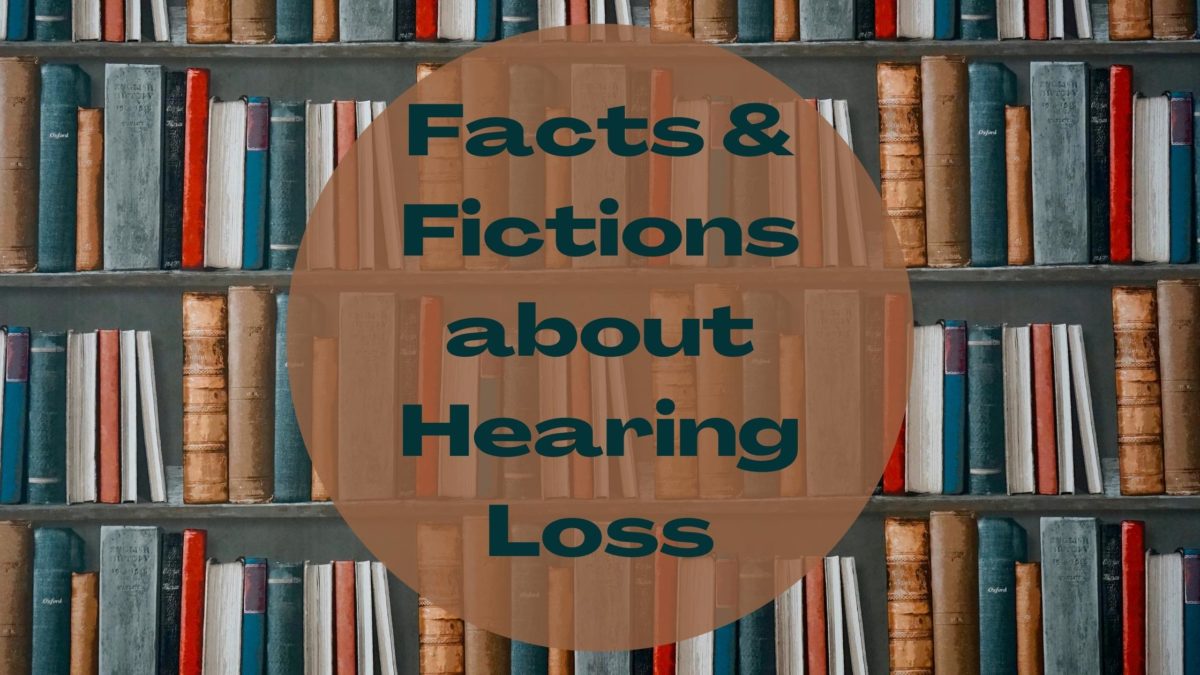The chances are that you know someone with hearing loss — you probably don’t even realize it! So, it would be fair to assume that hearing loss is something that only older people have. However, recent studies revealed that more than 35% of young adults have permanent hearing loss in the US.
Although it is still a widely misunderstood condition, we are here to clear up some of those misconceptions — hopefully alleviating any concerns you may have about your hearing or the hearing of someone important in your life.
Fiction: Only the Elderly Have Hearing Loss
This is a widely believed misconception. About 40% of Americans with hearing loss are under 60. As you age, you are likely to experience hearing loss. Almost 30% of those between ages 50 and 59 suffer from some degree of hearing impairment in one or both ears; 45% of people between 60 and 69 have impaired hearing, and three-quarters of those older than 70 do.
Fiction: Sign Language is the Best Way to Communicate with the Hearing Impaired
Not everyone with hearing loss uses or understands sign language. Many people who experience hearing loss gradually over time don’t even recognize that they have a communication issue. People with hearing loss use a variety of ways to help with communication, including lip-reading, hearing aids, and paying attention to facial expressions.
Fiction: Everyone with Hearing Loss Uses Hearing Aids
You miss so much when you lose one of your vital senses! Some people with hearing loss choose not to, for various reasons, from personal aesthetics to financial challenges. Only about one in five individuals with hearing loss chose to get hearing aids, and that’s a sad fact that we try to change every day at Pacific Hearing Care.
Fiction: Your Hearing Loss was Caused by Rock Concerts
Well, they certainly didn’t help your hearing – but there are likely other contributors. Hearing loss can be part of normal aging, genetics, medications, smoking, poor nutrition, and diabetes. All of these things destroy tiny hair cells in the inner ear that are vital to sending auditory signals to your brain. Once the cells are damaged, they stay damaged. You may not notice the damage right away because the existing hair cells are enough to compensate. As the damage continues, you gradually lose more of your hearing.
Fiction: If You Can Hear Some Sounds – You Should Wait
The longer you wait to schedule a hearing test, the harder your hearing loss will treat. Studies were done on brain imaging show part of the brain starts to shrink because there is a lack of auditory stimulation. Your brain stops recognizing some sounds. So, people who wait to get hearing aids sometimes discover that the new hearing aids don’t help as much as they thought they would. However, it is fortunate that our brain can “relearn” how to hear. Recent studies show the brain can reprogram itself even into old age with the proper stimulation, so you can teach your brain to hear again by wearing your hearing aids.
Fiction: Hearing Loss is Frustrating, But It’s Not Damaging
Research from Johns Hopkins University shows that untreated hearing loss can damage your overall health. Untreated hearing loss puts you at risk for developing dementia due to the strain it puts on your brain.
Hearing aids have been shown to improve a wearer’s general quality of life. It improves memory and mood and even can lead to better sleeping patterns. Studies show if you are concentrating on hearing instead of your surroundings, falling becomes an issue. Falling is a problem with seniors, and hearing aids improve your balance.
Fiction: It’s Hard to Handle All that Technology
There is indeed a lot of new, sophisticated hearing technology out there. And fortunately, many advancements in hearing aid technology have made them more user-friendly! If you have dexterity issues, many new hearing aids are digital and put on a charger – no changing batteries. They can be programmed using a device that looks like a small remote control – easily managed.
There’s no good excuse to put off seeking treatment when it comes to hearing loss. Contact us today for an appointment!

